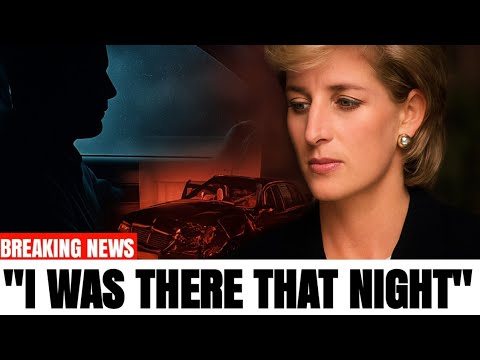Princess Diana’s Driver BREAKS SILENCE After 27 Years What He Said SHOCKED Everyone

My professionalism was lacking a little bit because, as I turned around, the eyelashes and the hair of the princess were moved. He told me, “Stay quiet or you’ll end up like her.” Those were the words, and I believed him. For over two decades, Princess Diana’s tragic death has sparked conspiracy theories, cover-up accusations, and whispered warnings behind palace walls. But now, the man who drove her that fateful night is finally breaking his silence.
In a chilling new account, he claims King Charles personally issued a threat—one so direct, so terrifying, it forced him into hiding. And that’s not all. Diana’s own brother, Charles Spencer, is backing the story with a bombshell allegation that exposes a deeper royal secret.
What did King Charles say after Diana’s death? Why has this truth been buried until now? And who else knew? Stay with us as we uncover the threat, the fear, and the decades-long silence now shattered.
Before we continue, please hit the like button, subscribe to the channel, and turn on the notification bell for updates.
It begins with silence—a silence that stretched for nearly three decades. A silence that was both haunting and heavy. The kind of silence that doesn’t come from peace but from fear, from intimidation, from secrets buried under layers of loyalty, trauma, and unimaginable grief.
For 27 years, the man who sat behind the wheel on one of the most tragic nights in modern history said nothing. Not a single word publicly about what he witnessed. Not a whisper about what was said to him by the people in power. Not even a denial. Just silence. That silence was louder than any statement.
But now, for the first time, he’s speaking—and what he’s saying is sending shock waves through the United Kingdom, the Commonwealth, and beyond. His voice is tired but resolute. His eyes carry the weight of years spun in the shadows. His story, once buried beneath headlines and conspiracy theories, now fights its way to the surface.
Because, according to this man, the driver tasked with navigating Princess Diana on that fateful August night in 1997 was not just a witness to tragedy; he was the recipient of a threat—a warning wrapped in menace—a sentence that echoed in his ears every day since.
“You saw what happened to her. Don’t be next.” He says those words came from King Charles, then Prince of Wales, now monarch of a divided realm. And those words, he claims, were not simply a reflection of grief or caution; they were a command, a direct order to keep quiet, to suppress, to forget—or else.
For decades, the world has speculated on the death of Princess Diana. Some accept the official narrative—a tragic car crash caused by a drunk driver, reckless paparazzi, and a chaotic chase through the streets of Paris. Others have always believed there’s more—that the story never quite added up; that certain questions were dismissed too quickly; that certain people were protected.
That Diana’s fears, well documented and openly expressed, were not paranoia but premonitions.
Why was Diana so scared in her final months? Why did she write letters to friends and lawyers claiming her life was in danger? Why did she say she believed she would be killed in a car accident? Why were key pieces of CCTV footage from the Pont de l’Alma tunnel missing? Why did emergency services take so long to respond at night? Why was there such urgency to embalm her body within hours of her death before a formal autopsy was even completed?
And perhaps most chillingly, why were the men closest to the event—drivers, bodyguards, eyewitnesses—so reluctant to speak?
Now, the silence begins to crack. The driver who spent years avoiding cameras, refusing interviews, and living in quiet anonymity has stepped forward. Not for money, not for fame, but because, as he says, there comes a point when the truth matters more than the fear.
He says he was summoned to a private meeting with Prince Charles just days after Diana’s death. The details of that meeting had never been disclosed until now. In a nondescript room behind closed doors, Charles allegedly looked him in the eye and said words that chilled him to the bone.
The phrase wasn’t shouted. It wasn’t screamed. It was whispered. And that made it worse.
“You saw what happened to her. Don’t be next.” Those words are etched into his memory like a scar. They were not vague. They were not easily misunderstood. They were crystal clear. He was being warned—speak, and you could share her fate.
The implications are devastating. If true, it suggests not just a cover-up but an orchestration. It suggests that Diana’s fears were valid, her suspicions grounded. It hints that forces within the palace—or close to it—may have wanted her silenced, not because she was dangerous in the conventional sense but because she was uncontrollable, free-thinking, emotional, human.
Diana didn’t follow the script. She spoke out. She defied tradition. She touched the poor, the sick, the unwanted.




